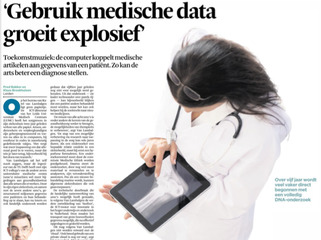New models promise to make sharing health information almost as simple as shopping on Amazon.
My last two articles had a common theme: freeing the data. We first looked at new approaches for patients and for providers. Of course, no matter how innovative the personal health records (PHRs) or electronic health records (EHRs) become, given the highly fragmented and specialized US healthcare system they still need to exchange data in a secure way that preserves privacy and trust. That is the goal of health information exchange (HIE).
HIE has been around for decades. Back in the mid-1970s, I tried (unsuccessfully) to create one in a rural county in South Carolina. From then until now, there have been nagging problems around the inherent lack of interoperability in commercial health IT systems; the lack of business incentives to share data; and the mismatch between the cost of HIT and its perceived (or real) financial benefits and to whom they accrue. We'll focus here on how interoperability might be achieved at an affordable cost.
The key HIE technical challenges are easily understood. Parts of a patient's clinical data will often be stored in many EHRs. For a patient with four, five, or more chronic diseases (these drive half of all Medicare costs) research shows that this will typically exceed 10 EHR implementations from multiple vendors! A conscientious provider seeing such a patient would want a comprehensive view of all of this care in order to save time collecting information that already exists, avoid duplicating tests and procedures that have already been done, and prevent mistakes from lack of information. ...
Historically, there have been two attempted solutions: 1) store everything centrally and, in essence, create a community record, or 2) keep the data at the source but build central indexes to patients and their medical documents and provide some kind of translation service to bridge differences in the way clinical data is represented across EHRs. This is the so-called hybrid exchange. ...
Thus achieving financial sustainability, in the absence of government or philanthropic subsidy, has proven too challenging ..
As a result, starting a few years ago a third approach began to gain traction. It's called the Internet! Actually, the proper term is federated exchange. Leave each patient's data where it is and use lighter-weight technologies to support exchange. ..
Read on !
Could this be the future of HIE? It's too early to be sure, but I wouldn't bet against it!



 Your new post is loading...
Your new post is loading...









Indeed, in concspt these appear simple solutions. However as the cases from for instance Belgium and the Netherlands, each with different approaches, proove to be difficult. "Implementation" is the neam of the game.